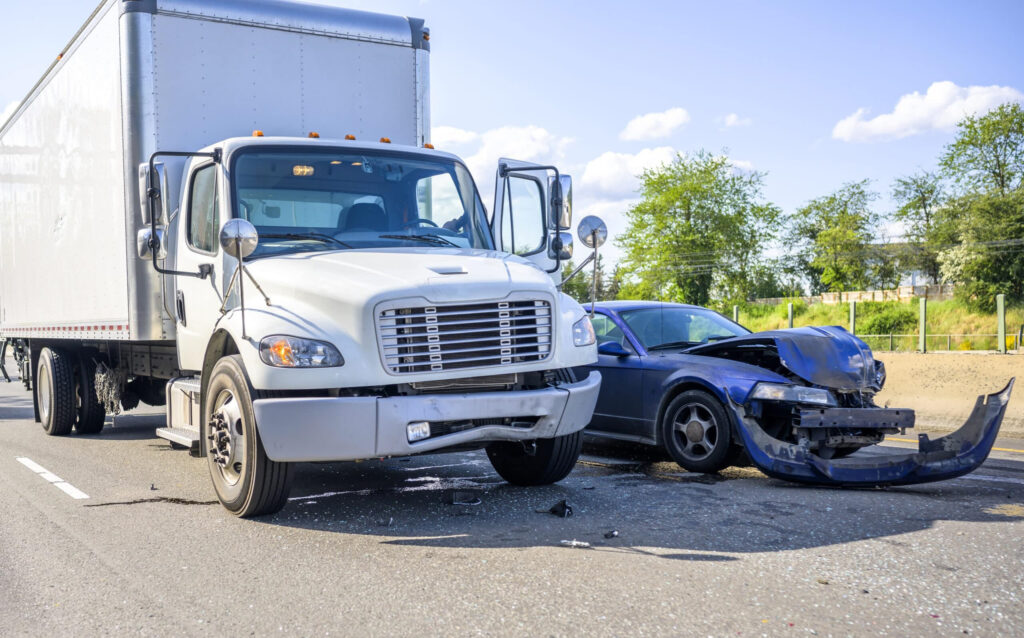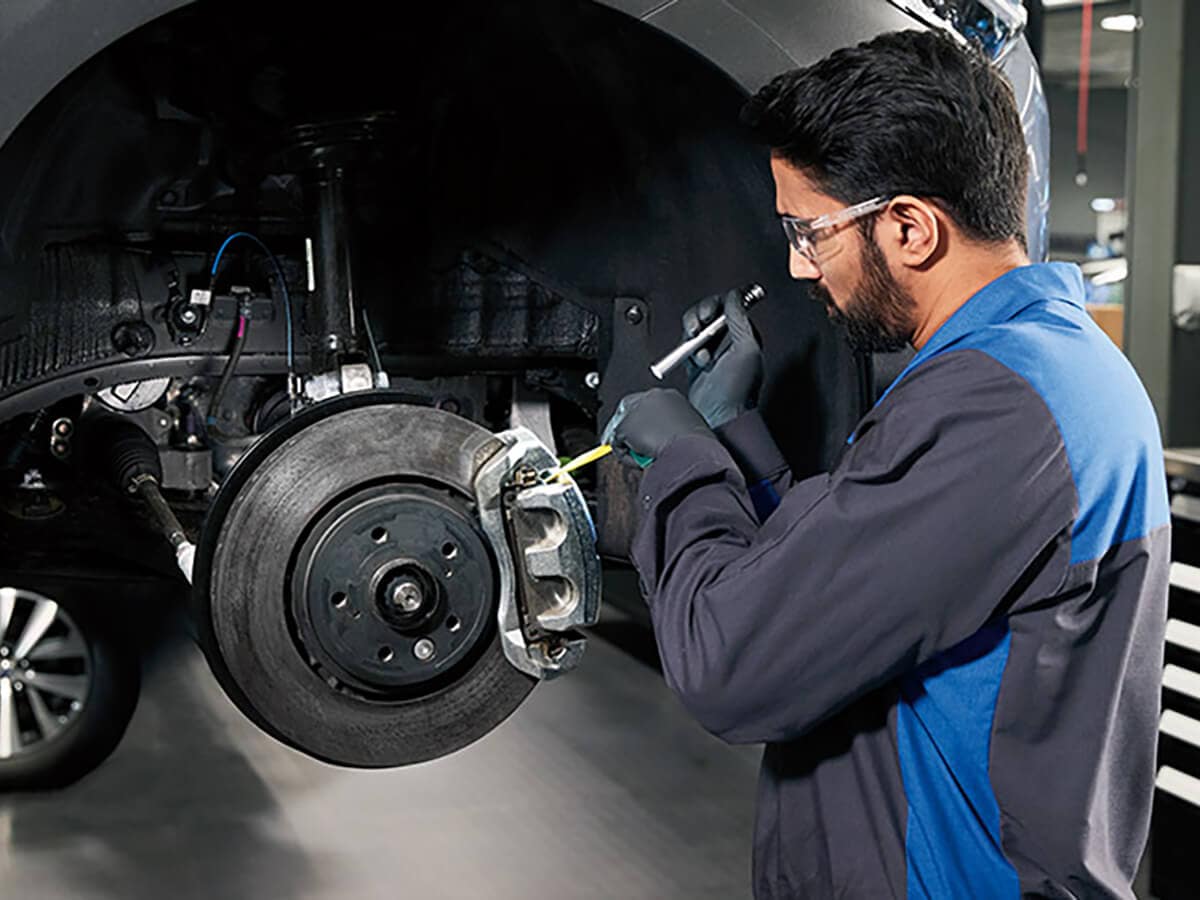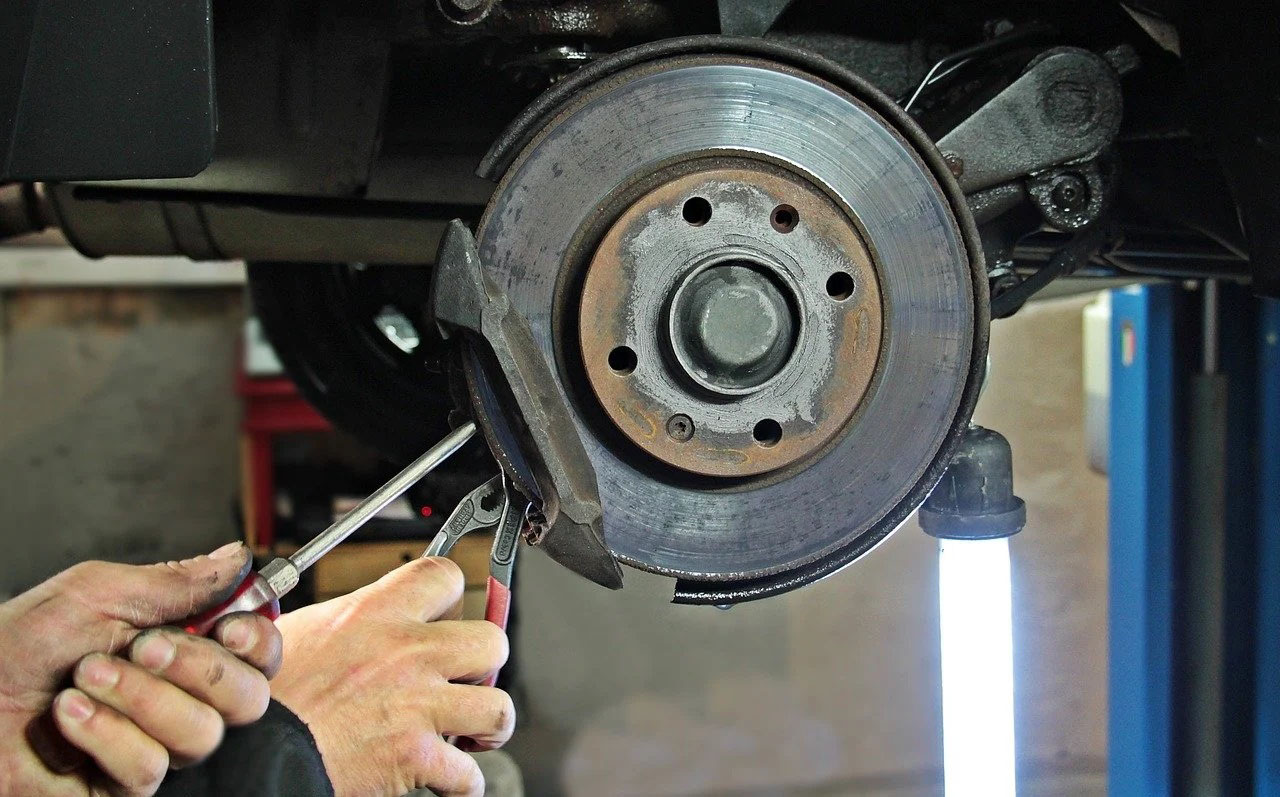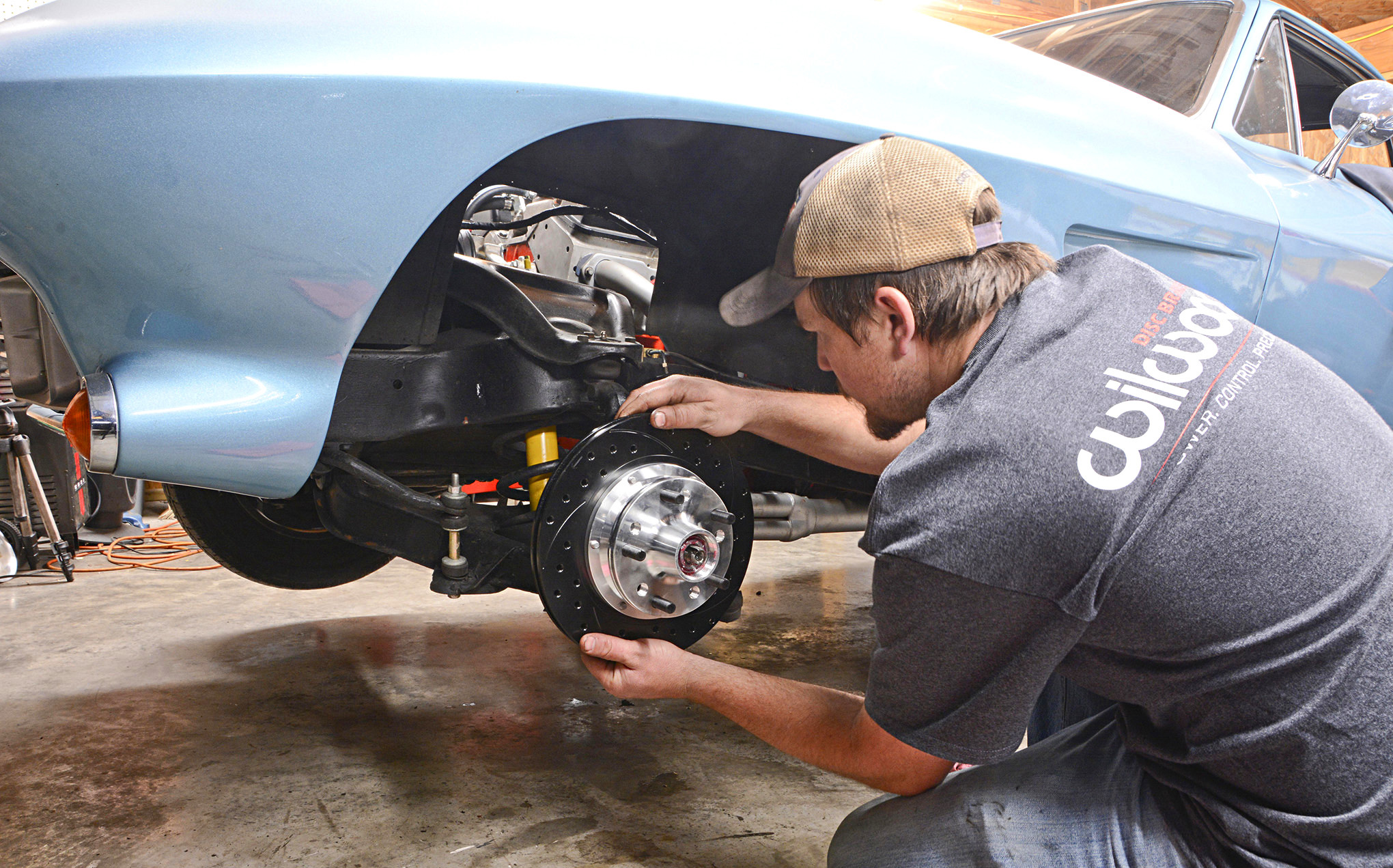You might wonder, is brake checking illegal? Brake checking happens when a driver hits their brakes hard on purpose in front of another car. This article will explain the law and what you can do about it.
Keep reading to learn more.
Table of Contents
ToggleWhat is Brake Checking?
Brake checking happens when a driver suddenly hits their brakes on purpose. They do this to scare or stop the car too close behind them.
Definition and Purpose of Brake Checking
Brake checking happens when a driver suddenly hits their brakes hard in front of another vehicle. This move can be risky and is often a response to tailgating, where one car follows too closely behind another.
The idea might be to warn the following driver or make them back off. Yet, this sudden stopping can lead to rear-end collisions and is seen as dangerous driving behavior.
Tailgating invites brake checking; both are practices that raise risks on the road.
Drivers might think brake checking teaches tailgaters a lesson, but it’s more about provoking than teaching safe driving habits. Legal consequences for such actions depend on local traffic laws and whether an accident occurs due to this maneuver.
From fines to being found liable for accidents, brake checking carries serious legal risks alongside its threat to road safety.
Why Drivers Engage in Brake Checking
Drivers sometimes brake check for many reasons. They may feel the car behind them is too close and they want to send a message to back off. This action falls under aggressive driving behaviors.
People also do it out of anger or frustration on the road, which can lead to road rage situations. Both are dangerous ways to handle stress while driving.
Another reason for brake checking is an illegal scheme called “crash for cash.” In these cases, drivers intentionally cause accidents to claim insurance money. They suddenly stop so the car behind hits them, then they blame the other driver for not keeping a safe distance.
It’s a form of insurance fraud that puts everyone at risk on the road.
Legal Consequences of Brake Checking
Brake checking can lead to serious legal trouble. It often falls under reckless or aggressive driving in the eyes of the law, which can result in hefty fines and even time in jail.
Legal Classification as Reckless or Aggressive Driving
Courts often see brake checking as either reckless or aggressive driving. This means if you suddenly stop to make the car behind you keep a safer distance, you might be breaking the law.
Reckless driving is when someone drives in a way that could hurt others. Aggressive driving includes actions like speeding, tailgating, and yes, brake checking.
If your actions behind the wheel can harm other road users, it’s considered reckless or aggressive.
States have different penalties for these offenses. You might get fined, have points added to your license, or even face jail time for serious cases. Also, if an accident happens because of brake checking leading to auto accidents or traffic fatalities, insurance companies may see you as at fault.
This could mean paying more for car insurance later on.
Penalties and Fines for Brake Checking
If you brake check another driver and cause a crash, the law considers it reckless driving. Reckless driving is a serious offense. You might have to pay big fines. In some places, these fines can reach thousands of dollars.
Also, you could face time in jail or community service. The exact penalty depends on where the incident happens.
Insurance companies take note if you brake check someone. This action can raise your insurance costs. If there’s a vehicle accident and it’s found out that you brake checked, your insurance might not cover the damages.
This means you would have to pay for any injuries or damage to cars out of your pocket.
Liability in Case of Accidents Caused by Brake Checking
If a driver brake checks you and it leads to an accident, they may be held accountable. This means they could be responsible for damages and injuries that happen because of the crash.
Courts often see brake checking as reckless or aggressive driving, which is against the law. If you end up in such an accident, lawyers can help you file a personal injury claim. This might include costs for fixing your car, medical bills, or other losses.
Filing a claim with the insurance company of the driver who brake checked you is another step. The insurance company will look at reports from the police, photos from the scene, and maybe dashcam footage to figure out what happened.
Your insurance might also cover some costs while you wait for compensation from the other party’s insurer. It’s key to gather as much evidence as possible right after the accident to support your case.
Dangers of Brake Checking
Brake checking can lead to serious car wrecks. It also makes other drivers angry, which might make road conditions unsafe for everyone.
Increased Risk of Rear-End Collisions
Brake checking makes rear-end collisions more likely. This happens because the sudden stop forces the car behind to hit the brakes hard. Often, there’s not enough room or time for them to stop safely.
Imagine driving and suddenly the car in front stops. You might crash into them if you’re too close.
I saw a brake check once that caused a four-car pile-up on the highway. The first driver stopped fast on purpose. The second couldn’t stop in time and hit them. Then two more cars crashed into each other trying to avoid the first accident.
It was a clear example of how dangerous this action can be, leading to multiple vehicle accidents and making highways unsafe.
Potential for Road Rage Escalation
Road rage can get worse because of brake checking. This action may make the other driver very mad. They might try to pay you back on the road, which is dangerous for everyone driving.
Cars getting too close or acting mean can lead traffic to slow down and become less safe.
Aggression on the roads leads to unsafe conditions for all motorists.
Understanding road rage and knowing how it connects with brake checking is key. If a car suddenly stops in front of you, it’s smart not to react badly. Stay calm and keep a safe distance from aggressive drivers.
Reporting dangerous behavior helps keep the roads safer for you and others.
Impact on Traffic Safety and Flow
Brake checking can escalate the incidence of auto accidents and multiple-car pile-ups on the highway. This risky behavior disrupts traffic movement, compelling other drivers to halt abruptly, which can set off a cascading effect of stopping.
Consequently, it extends the stopping distance for trailing vehicles and amplifies the possibility of rear-end collisions. The overall safety on the road deteriorates due to these abrupt halts.
Maintaining a safe distance between vehicles is crucial for road safety. Brake checking contravenes this protocol and renders highways hazardous zones. Traffic enforcers employ monitoring measures to identify drivers who engage in brake checking.
They levy sanctions guided by reports from bystanders or proof such as dashboard-camera footage. All drivers should be aware that brake checking exposes them to danger and also impacts all others in their vicinity on the road.
What to Do if You Are a Victim of Brake Checking
If someone brake checks you, keep a safe distance and stay calm. Report the driver if they put you in danger. Learn more about how to protect yourself on the road.
Maintain a Safe Following Distance
Keeping a safe space between your car and the one in front helps prevent accidents. This is key for avoiding rear-end collisions and keeps you from brake checking. Experts say you should leave at least three seconds of driving time between cars.
This gap lets you react if the car ahead stops suddenly.
To figure out this distance, pick a fixed point on the road. When the vehicle in front passes it, start counting seconds until you pass the same spot. If it’s less than three seconds, slow down to make more space.
This practice isn’t just good sense – it’s essential for safe driving and staying clear of traffic violations or possible legal issues from automobile mishaps.
Do Not Engage with Aggressive Drivers
If a driver appears upset while driving, maintain a safe gap. Responding could escalate the situation. You might observe them accelerating or bypassing other vehicles impulsively. Such reckless driving could potentially cause vehicular mishaps.
Remain composed and provide them with adequate room.
There was an instance where a driver became extremely irritated because someone used their horn excessively. Rather than reciprocating with anger, the wise decision was to stay neutral.
If you perceive the situation as hazardous, don’t hesitate to alert the authorities. They frequently handle such circumstances and have expertise in resolving them without inflicting harm or inducing a car collision.
Prioritize safety – it’s vital for you and all other road users.
Report Dangerous Behavior to Authorities
Reporting dangerous behavior, like brake checking, to authorities is key. If you see someone doing it, note the details. This includes car type, color, license plate, and where it happened.
Call the police with this info. They need your eyewitness account to act.
You might worry about making a report. But think of it as helping keep roads safe. Your action can stop future car accidents or road rage cases. Police reports also help in legal actions or insurance claims if there’s an accident later on.
So don’t hesitate to speak up for safety.
Conclusion
Brake checking is risky and often illegal. It can lead to accidents, legal trouble, and harm. Keep your distance on the road and stay calm around aggressive drivers. If you face brake checking, use it as a chance to drive more safely.
Share any dangerous driving with the police. This keeps everyone safer on the roads.
FAQs
What exactly is brake checking?
Brake checking refers to a driver behavior where they intentionally hit the brakes hard in front of another vehicle, often as an act of road rage or negligence.
Is brake checking considered illegal according to driving laws and traffic regulations?
Yes, brake checking can be deemed illegal under many traffic regulations because it poses significant risks for vehicular accidents including car crashes and motorcycle accidents.
How does one report instances of brake checking?
If you encounter a case of brake checking, it’s advisable to note down details like the license plate number, location, and time then report this information to law enforcement agencies or your auto insurance provider.
Can victims file personal injury lawsuits after automobile accidents caused by brake checks?
Absolutely! If you’ve suffered injuries such as broken collarbones from car crashes due to negligent drivers’ actions like brake-checking, consulting with a personal injury attorney could lead towards filing claims for compensatory or even punitive damages.
How do concepts like comparative fault and contributory negligence relate to cases involving brake-checking incidents?
Comparative fault and contributory negligence are legal principles used in determining liability coverage during lawsuits following automobile accidents. They assess how much each party’s actions contributed to the accident – if you were distracted driving when someone else performed a dangerous maneuver like braking abruptly in front of you (brake check), these principles could affect the verdict on your claim settlement.
Are there strategies for avoiding accidents resulting from sudden braking maneuvers by other drivers on the road?
To avoid pileups due to sudden stops by others on highways or off-road situations, always maintain safe distances between vehicles; stay alert about driver visibility around you; use hazard lights appropriately; refrain from texting while driving – all these measures help ensure highway safety.




